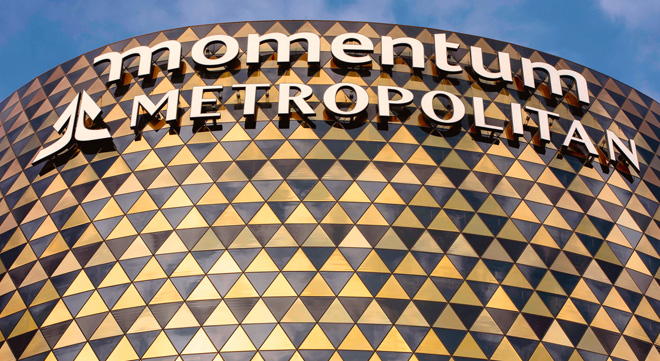JSE-listed financial services group Momentum Metropolitan Holdings (MMH) reported a 46% jump in normalised headline earnings to R2.23 billion for the six months to the end of December 2022, in part because of a decline in deaths linked to Covid-19.
“We are grateful to see the easing of Covid-19-related death claims and the positive mortality-experience variances in our main life insurance businesses. This indicates that the Covid-19 pandemic has reached its endemic phase,” group chief executive Hillie Meyer said.
Although the period’s results were negatively impacted by heightened mortality experience resulting from Covid-19 (net of the release of Covid-19 reserves), MMH said death claims have normalised to levels last seen in 2019.
Its South African life insurance businesses paid R5bn in gross mortality claims during the current period versus R7bn in the comparative period.
Operating profit more than doubled from R895 million in the prior period to R1.898bn. This performance followed a reduction in death claims in Momentum Life, Metropolitan Life, Momentum Corporate and Momentum Metropolitan Africa.
MMH, which is valued at R28.2bn on the JSE, declared an interim dividend of 50 cents per ordinary share, representing a 43% increase on the prior period. Normalised headline earnings per share increased by 49%, from 100c to 149c.
However, the group’s Present Value of New Business Premiums declined to R33.3bn, 10% lower than in the prior period, while its Value of New Business (or VNB, which measures the profitability of new business) declined to R324m, 19% lower than in the prior period, mainly because of lower volumes.
“While our earnings outlook has improved, our new business volumes did not meet expectations for some of the product lines, mainly as a result of the prevailing economic headwinds and lack of growth in the industry,” Meyer said.
He said that recent pressure on sales volumes indicate that South Africans’ disposable income remains under pressure due to rising interest rates, high inflation, and the lack of economic growth. This is likely to put ongoing affordability pressure on new business volumes.
Main contributors
The businesses that contributed most to the group’s results include Momentum Life, Momentum Corporate, and Momentum Metropolitan Health.
Momentum Life’s normalised headline earnings rose to R689m from R30m in the prior period. Its net mortality experience improved from a loss of R335m to a profit of R80m after allowing for Covid-19 provision releases.
The value of new business was up by 3% to R3.6bn, mainly attributable to a 6% improvement in long-term savings business, although income protection business declined by 2%.
Momentum Corporate increased its normalised headline earnings to R556m compared to R370m – this includes growth of 64% in operating profit to R494m.
The value of new business increased by 19% to R5.8bn, bolstered by double-digit growth in single and recurring premium flows. Single premium new business increased by 70%, mainly driven by improved investment flows into structured investment and annuity products. New business from recurring premiums increased by 22%, driven by the onboarding of large clients in the FundsAtWork protection book, as well as in the structured investment environment.
Momentum Metropolitan Health’s normalised headline earnings improved by 55% to R146m. The business’s membership growth of 3%, despite a tough economic environment, was mainly attributable to the continued growth in the public sector and Health4Me divisions.
Decline in revenue from investments business
Momentum Investments saw its normalised headline earnings decline by 10% to R441m. This included a 13% decline in operating profit to R383m, partially offset by growth of 14% in investment return.
The decline in operating profit was mainly due to reduced revenue on the Momentum Wealth platform, driven by lower new business volumes and weak market performance. The decline in operating profit was further impacted by reduced earnings from the structured business, largely because of lower mortality profits and lower new business volumes.
Metropolitan Life’s normalised headline earnings remained flat. Operating profit improved by 2% to R237m, mainly because of lower death claims, particularly in the funeral protection business.
However, affordability constraints on consumers saw a continued growth in lapses on income protection business. MMH said the persistency experience losses improved in the second quarter of the current period following management actions.
Metropolitan Life’s VNB declined by 45% to R84m as consumers shifted lower-margin savings products and the lapsing of policies before the first premium was paid.
Non-life business profits down 20%
The results were less cheerful in MMH’s non-life business compared to its life business.
Normalised headline earnings for non-life business declined by 20% to R243m compared to R303m in the prior period. Operating profit declined by 7%, mainly because of lower underwriting profits in Momentum Insure, which were negatively impacted by higher claims.
Guardrisk’s normalised headline earnings declined by 2% to R289m, predominantly due to the non-repeat of a positive one-off fair value gain in the prior period. Excluding the impact of the one-off, Guardrisk’s normalised earnings increased by 18%. Operating profit was aided by a recovery in the volume and affinity business of Guardrisk Insurance, growth of 23% in the underwriting profits of Guardrisk General Insurance, and “solid” growth in management fee income in the life divisions.
Momentum Insure’s normalised headline earnings declined from a profit of R8m to a loss of R46m, mainly impacted by a high claim ratio of 73%. Continued inflationary pressures on the cost of claims, increased frequency of incidents due to power surges (exacerbated by load shedding), and a continuation of adverse weather-related events, particularly towards the end of the reporting period, negatively impacted the claim ratio.
The earnings loss was slightly narrowed by premium rate increases on new business and policy renewals during the six-month period.
Gross written premiums increased by 7% to R1.523bn. New business premiums improved by 19% to R330m despite a challenging operating environment.



